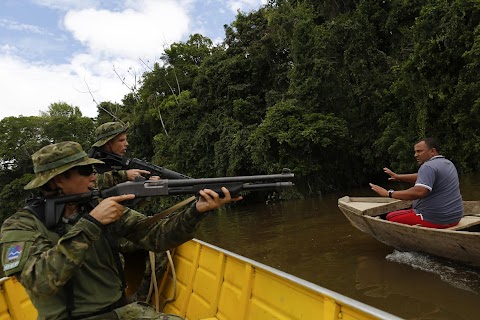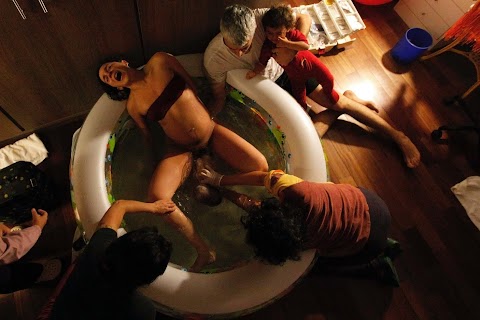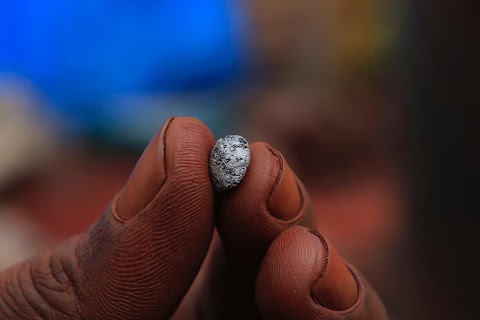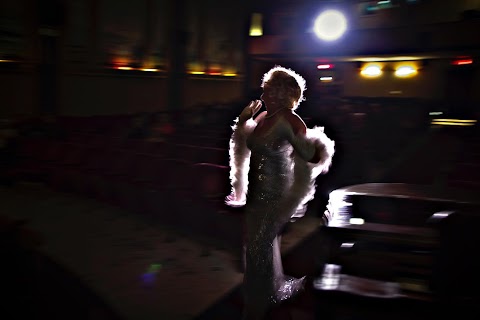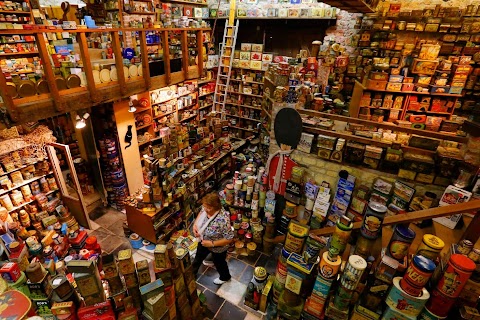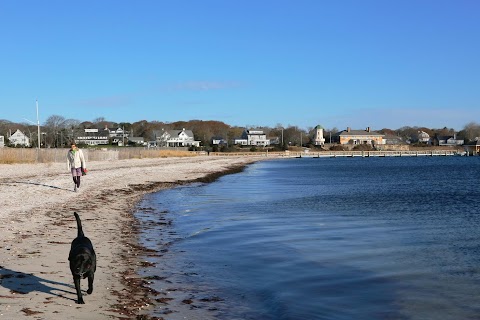
Slippery customers
 Cathal McNaughton
Cathal McNaughton
This section of an eel, lying on a bloody board, might not look particularly appetising. Yet the fish have a long and rich culinary history, from the food stalls and pie shops of Dickensian London to haute cuisine restaurants in Tokyo.
Nowadays, however, eels are becoming an increasingly rare delicacy as stocks plummet and Europe's fishing industry shrinks to make itself sustainable.

Fisherman Shane O'Neill checks his lines as he plies his trade on Northern Ireland’s Lough Neagh - Europe's largest commercial eel fishery.
The sprightly 70 year old has worked the lake since 1960, but he believes that the traditional industry and way of life may be drawing to a close.
"There will not be another generation of fishermen. More than half are of pension age. Whenever I finish that will be the end," he said.
Stocks of the fish in Europe have shrunk dramatically in recent decades. The number of young eels reaching the continent's river systems, where they mature before returning to the Sargasso Sea in the Atlantic to breed, has fallen by up to 99 percent since the 1970s, according to the International Council for Exploration of the Seas group of scientists.

O'Neill checks his nets after a morning's fishing out on the Northern Irish lake. Although it produces an annual catch of about 600 tonnes, the eels pulled from its waters are not that popular locally.
According to legend, Ireland's patron Saint Patrick removed all its snakes, which represented the Devil, and many went into the water and became eels - one possible reason why they are not in favour in the region.
So most of the lake's produce - protected under European law in the same way as champagne and parma ham and a delicacy in countries including Germany, Poland, Chinaand Japan - gets sent abroad.
Selling at around 6 pounds ($9.7) a pound (450 grams) or three times the price of other eels, Lough Neagh's catch is also exported across the Irish Sea to Britain.
Londoners used to harvest eels from the Thames and they became a staple for the city's working class, whether jellied - chopped and boiled in a stock that cools and sets - or baked in a pie with mashed potato.
But most of the capital's eel outlets have long since closed, mirroring the sharp drop in Europe's stocks.
Slideshow

O'Neill’s breakfast lies in his workshop.

The fisherman prepares his lines after fishing out on the lake.

He steps out of his workshop, which he set up in an old shipping container.

He uses his binoculars to check the weather after a fishing excursion.

O'Neill checks his lines as dawn breaks.

His catch glistens in the light.

He makes his way back to shore after checking his lines.

He unloads lines from his boat.

O'Neill displays some of his catch.

He prepares an eel for cooking.

He skins one of the fish.

Parts of an eel lie on a board as O'Neill cooks.

He fries eels on the stove.

The fish sizzle in the pan.

